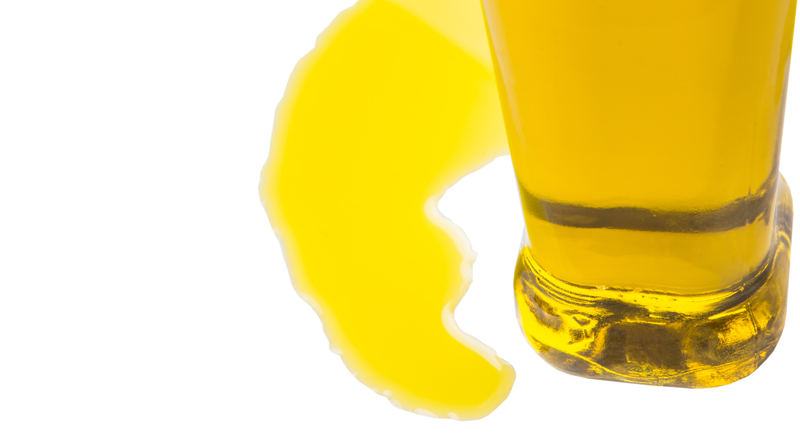Say Goodbye to Pet Odor and Hello to Freshness
Posted on 20/09/2025
Say Goodbye to Pet Odor and Hello to Freshness: The Ultimate Guide
If you're a pet owner, you know the unique blend of joy and challenge that comes with sharing your home with furry friends. One of the most persistent difficulties? Pet odors. From beloved dogs to curious cats, pets can leave behind scents that make even the coziest home feel less than inviting. But don't worry--you can *say goodbye to pet odor and hello to freshness* with the right knowledge and strategies.
Understanding Pet Odor: Why Does It Happen?
Before we tackle how to eliminate pet odors, it's essential to understand why they occur. Pets naturally secrete oils, shed fur, and sometimes have "accidents" inside the house. Every pet--from young puppies and kittens to senior animals--can contribute to indoor scents in various ways:
- Body Oils: Dogs and cats produce natural oils that help keep their coats healthy. Unfortunately, these oils can rub onto furniture and accumulate over time, leading to odor.
- Urine and Feces: Even house-trained pets can have occasional accidents, creating strong smells if not cleaned promptly and properly.
- Dander: Pet skin flakes (dander) can carry a distinctive odor and contribute to allergies.
- Litter Boxes and Cages: Improperly maintained litter boxes, cages, or bedding quickly become sources of persistent pet smells.
Luckily, a combination of cleaning routines, effective products, and lifestyle adjustments can help keep your home smelling fresh.

How to Eliminate Pet Odors at Their Source
To truly eliminate pet odors, you must address the source. Masking smells only offers temporary relief. Here are proven strategies for every pet-loving household:
1. Keep Your Pets Clean and Groomed
Your first line of defense is your pet's hygiene. Regular grooming doesn't just keep your animal looking good--it also keeps odor-causing oils and dander in check. For best results:
- Bathe pets regularly using shampoos formulated for their skin type and breed.
- Brush fur daily to remove loose hair and disperse natural oils.
- Trim claws and clean ears to prevent infection, which can cause bad smells.
Tip: Always dry your pet thoroughly after baths to prevent mildew and extra odors.
2. Clean Up Accidents Immediately
Pet accidents are inevitable. Immediate and proper cleanup prevents stains and lasting smells. Here's how:
- Blot--not rub--any urine with an absorbent towel.
- Use enzyme-based pet odor removers which break down uric acid and proteins at the molecular level, erasing both stains and scents.
- Never use ammonia-based cleaners; their scent can encourage pets to revisit the same spot.
Quick action is your best friend--dealing with messes right away stops them from setting in.
3. Tackle Pet Bedding and Toys
Just like human linens, pet bedding needs regular washing. Wash bedding, blankets, and plush toys weekly using hot water and a pet-safe detergent. This eliminates odor, dander, and bacteria build-up.
4. Stay on Top of Litter Boxes and Cages
Litter boxes and animal cages can quickly overpower your home's freshness. To keep these areas smelling pleasant:
- Scoop litter boxes daily and replace litter at least once a week.
- Wash boxes and cages thoroughly every week using a mild unscented soap.
- Consider clumping, odor-neutralizing litter for cats.
- Line cages with absorbent, easily washed materials.
5. Vacuum and Mop Frequently
Pet fur and dander get everywhere. Vacuuming carpets, furniture, and drapes at least two to three times a week is crucial. Use a vacuum with a HEPA filter to trap even the tiniest particles. Mop hard floors frequently with a pet-safe cleaner to prevent odor build-up.
Deep Cleaning for Persistent Pet Odor
Sometimes, even with regular cleaning, lingering pet smells can remain. Deep cleaning may be necessary:
1. Shampoo Carpets and Upholstery
Pet odors love to settle into soft surfaces. Steam clean carpets, rugs, and fabric furniture every few months. For stubborn odors, use pet-specific carpet cleaning solutions that target organic materials.
2. Deodorize the Air
In addition to cleaning surfaces, freshening up the air is essential. Try:
- Running air purifiers with HEPA filters and activated charcoal.
- Opening windows for regular ventilation.
- Using homemade air fresheners (like simmering water with lemon and herbs) instead of harsh chemical sprays.
Pro Tip: Baking soda is a natural deodorizer! Sprinkle it on carpets, let sit for 30 minutes, then vacuum.
3. Wash Walls and Baseboards
Paws and fur shed oils that transfer to walls and baseboards, especially at pet height. Wipe these surfaces with a microfiber cloth, warm water, and a gentle cleaner.
Choosing the Right Pet Odor Eliminator Products
Not all cleaning products are created equal. Look for pet scent removal solutions that are:
- Enzyme-based: Destroys organic odor compounds at the source.
- Non-toxic and pet-safe: No harmful chemicals or fragrances that could irritate animals.
- Tested and recommended by veterinarians or pet care experts.
Some of the top pet odor neutralizers on the market include brands like Nature's Miracle, Angry Orange, and Rocco & Roxie. Always test a small area first for colorfastness!
DIY Home Remedies for Pet Odor
If you prefer natural solutions, there are several *homemade pet odor removers* you can try:
- Mix 1 cup of white vinegar, 2 cups of water, and a few drops of essential oil for an all-purpose fabric spray.
- Baking soda left on affected areas overnight lifts stubborn odors.
- A mixture of lemon juice and water can deodorize hard floors and surfaces.
Warning: Some essential oils (like tea tree and citrus) are toxic to pets--research or consult your vet before use!
Preventing Future Pet Odors: Proactive Tips
The best way to keep your home smelling fresh is to prevent pet odors before they begin. Try these practical habits:
1. Maintain Regular Vet Visits
Unusual odors can be a sign of health problems. Dental disease, infections, and poor diet may increase pet smells. Routine checkups keep your pet healthy--and your home fresher.
2. Consider Nutrition
A healthy diet supports healthy skin, coat, and digestion, all of which help minimize odor. Consult your veterinarian about the best food choices for your pet's age and breed.
3. Designate Pet-Friendly Zones
Limiting where pets roam helps contain potential scent issues. Cover favorite nap areas with washable blankets and place mats under food and water dishes to catch spills.
4. Keep Outdoor Areas Clean
Outdoor spaces can also be a source of pet odor. Regularly clean up after your pet in the yard, and rinse down patios or decks as needed.
5. Use Deodorizers and Room Sprays Wisely
Opt for natural or pet-safe commercial air sprays and diffusers. Avoid chemical-laden products that mask odors rather than eliminate them.
When to Call a Professional
If you've tried all the above and odors persist, it's time to call in the pros. Professional cleaners use specialized equipment and solutions to remove deeply embedded smells from carpets, upholstery, and even HVAC systems. This is especially valuable after moving into a new-to-you home that's housed pets, or if strong odors remain after thorough cleaning.

Frequently Asked Questions About Pet Odor Removal
What if my pet keeps soiling the same spot?
Persistent marking may be behavioral or medical. Clean the area thoroughly with an enzyme-based cleaner (to completely remove invisible traces), and consult your veterinarian or a pet behaviorist for further advice.
Are plug-in air fresheners safe for pets?
Many plug-ins contain chemicals unsafe for pets. Choose only products labeled as pet-friendly or opt for natural alternatives like HEPA-filter air purifiers.
Can I use vinegar or bleach to remove pet smells?
Vinegar is safe and effective for neutralizing mild odors, while bleach should be used with extreme caution--it's toxic to pets and can set urine stains if not thoroughly rinsed. Always prioritize pet-safe options.
How often should I clean my pet's stuff?
Wash bedding, blankets, and toys at least once a week. High-traffic items may need more frequent cleaning, especially if your pet sheds heavily or spends significant time outdoors.
How do I prevent "wet dog" smell?
Dry your dog thoroughly after baths or rainy walks. Use absorbent towels and ensure fur is completely dry before letting your dog on furniture or carpeted areas.
The Freshness Formula: Odor-Free Pet Homes Are Possible
There's no need to compromise between a loving pet home and a truly fresh environment. With consistent cleaning, strategic odor-prevention habits, safe products, and a little extra TLC, you can *say goodbye to pet odor and hello to freshness*--for good. Enjoy your pets and your pristine home, breathing easy from season to season!
Ready for a fresher home? Start with small daily steps, trust the process, and celebrate a life with pets and freshness in harmony.




